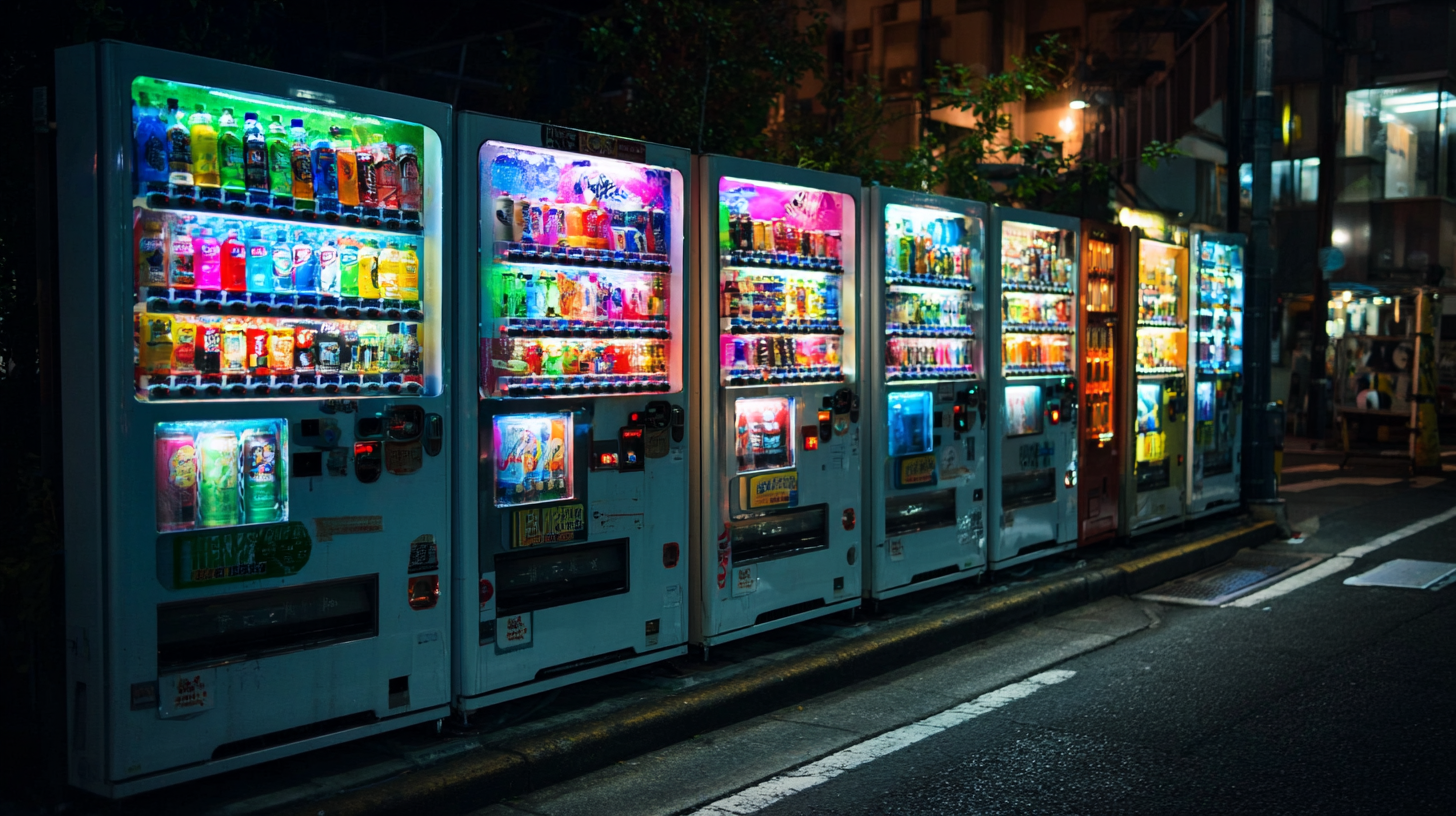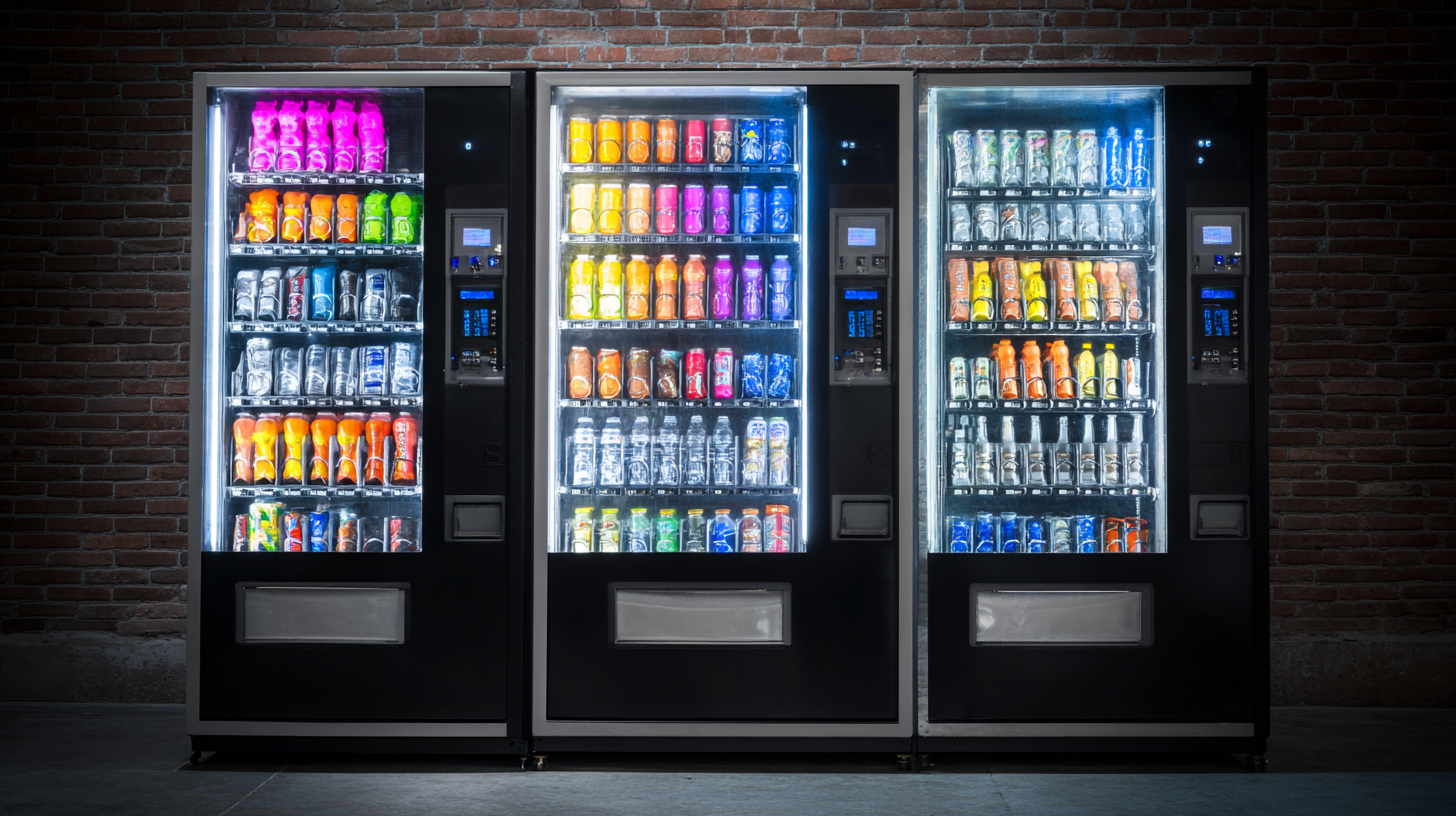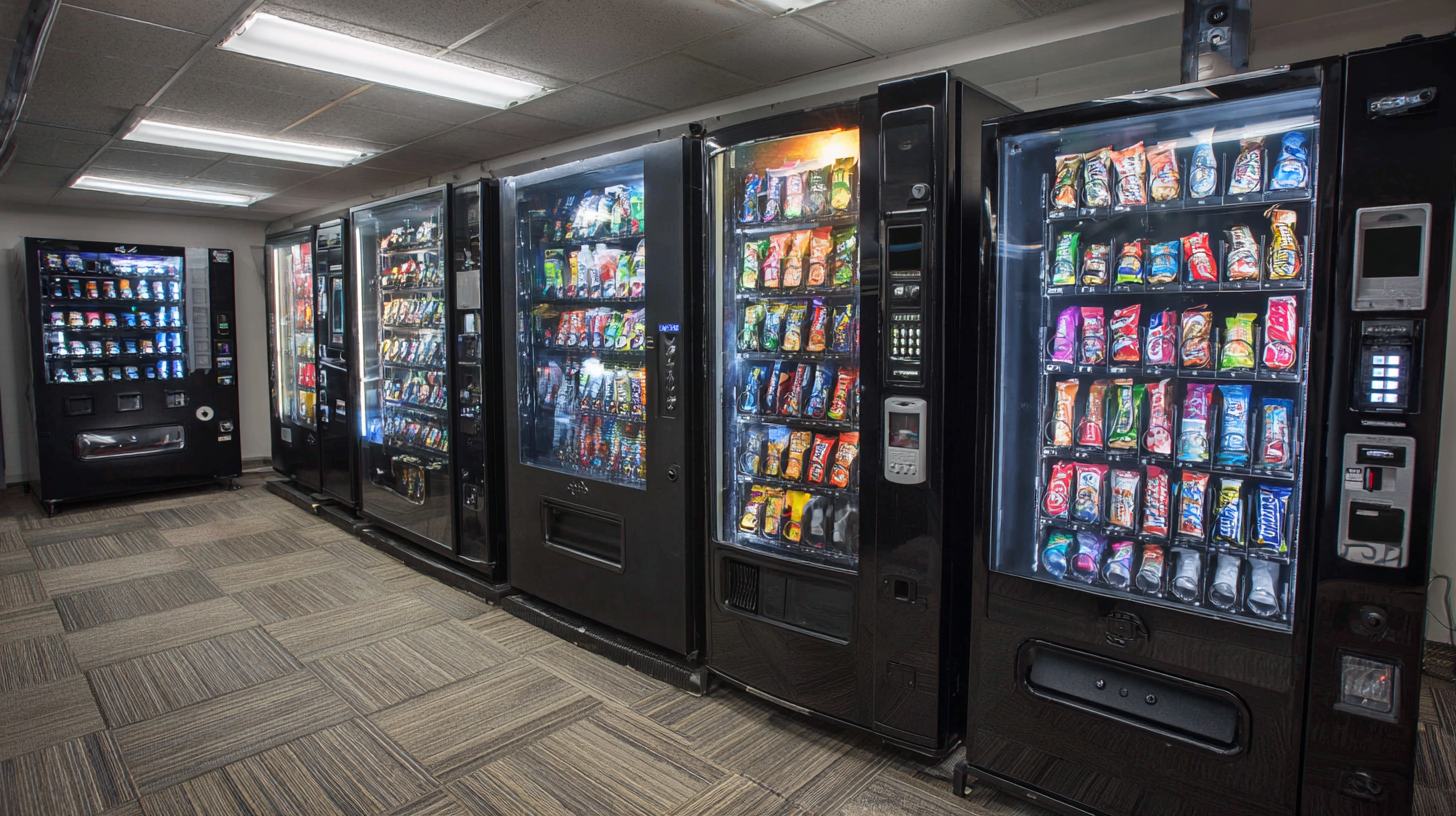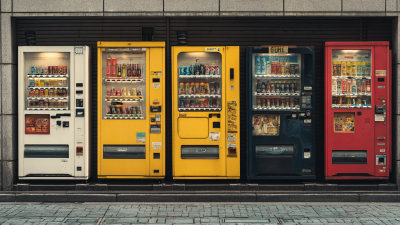Menu
Contact Us: 416.615.1555 | sale@booksvendingmachine.com
Menu
Contact Us: 416.615.1555 | sale@booksvendingmachine.com
In today's competitive business landscape, companies are continually seeking innovative ways to enhance revenue and improve customer satisfaction. One effective strategy that has gained significant traction is the decision to rent vending machines. According to a report by IBISWorld, the vending machine manufacturing industry generates approximately $3 billion in revenue annually, indicating a growing market. Renting vending machines allows businesses to offer quick and convenient access to snacks and beverages, thereby meeting the ever-evolving demands of consumers. Moreover, a survey by SnackNation highlighted that 88% of employees feel that workplace snacks contribute to their overall job satisfaction. This underscores the potential of vending machines not just as a revenue source but also as a means to foster a positive customer experience. By integrating rented vending machines into their operations, businesses can capitalize on this trend, providing value-added services that cater to modern consumer needs while boosting their bottom line.

Renting vending machines presents a compelling opportunity for businesses to enhance their revenue streams. According to recent statistical insights, the market for rented vending machines has seen a steady growth rate of approximately 10% annually, reflecting a growing demand among various consumer demographics. This trend underscores the increasing preference for convenient, on-the-go food and beverage options, particularly in high-traffic areas such as workplaces, schools, and hospitals. Companies that integrate vending machines into their offerings can tap into this profitable segment, often with minimal upfront investment and maintenance commitments.
Moreover, the data reveals that businesses utilizing vending machines experience not only increased revenue but also improved customer satisfaction. The flexibility of machine options allows businesses to cater directly to their clientele’s preferences, offering healthy snacks, gourmet coffee, or ethnic foods. This tailored approach has been shown to enhance customer retention, as patrons appreciate the accessibility and diversity of products available at their convenience. As more businesses recognize the power of vending machine rentals, leveraging these insights can lead to significant competitive advantages in today’s fast-paced market.

In today's fast-paced world, convenience has become a crucial factor in enhancing customer experience. By renting vending machines, businesses can seamlessly integrate quick and easy access to snacks and drinks into their service offerings. This not only saves time for customers but also caters to their need for immediate gratification.
The presence of vending machines can turn an ordinary visit into a more enjoyable outing, fostering positive associations with your brand.
Furthermore, the streamlined process of obtaining refreshments without waiting in long lines cultivates customer loyalty. When customers feel that their needs are met with minimal effort, they are more likely to return. Vending machines provide a 24/7 solution that adapts to varied customer schedules, ensuring satisfaction round the clock. This commitment to convenience not only boosts revenue by increasing the volume of purchases but ultimately builds a stronger bond between the business and its clientele, driving both satisfaction and repeat business.
Renting vending machines can be a strategic choice for businesses looking to maximize revenue while minimizing upfront costs. A recent report from IBISWorld indicates that the vending machine industry generates over $7 billion annually in the U.S. alone, and many businesses are tapping into this lucrative market without the heavy investment of ownership. Renting allows companies to allocate resources more effectively, freeing up capital that can be invested in other areas of the business. Moreover, the average cost of purchasing a vending machine can range from $3,000 to $10,000 depending on the type and features, whereas renting may only require a monthly outlay of $200 to $500, making it a more manageable option for small to medium-sized businesses.
In addition to the financial flexibility that renting provides, it can also contribute to higher customer satisfaction. A report by Technavio predicts that the global vending machine market will grow by $6.4 billion from 2021 to 2025, largely due to increasing demand for convenience. When businesses choose to rent machines, they often have access to the latest technology and variety of products, which enhances customer experience. For instance, modern vending machines equipped with cashless payment systems and interactive screens can significantly improve user engagement. By providing customers with convenient access to products, businesses can not only boost their revenue but also foster greater loyalty among their clientele.
| Cost Dimension | Renting (Annual) | Purchasing (One-time) | Expected Revenue (Annual) | Customer Satisfaction Rating |
|---|---|---|---|---|
| Vending Machine Cost | $1,200 | $3,000 | $5,000 | 8.5/10 |
| Maintenance Cost | Included | $300 | N/A | N/A |
| Initial Setup Cost | $200 | $500 | N/A | N/A |
| Total Annual Cost | $1,400 | $3,800 | $5,000 | 8.5/10 |
| Profit (Annual) | $3,600 | $1,200 | N/A | N/A |
When considering the installation of vending machines to enhance business revenue, targeting the right demographics is crucial. The selection of strategic locations plays a significant role in maximizing foot traffic and, consequently, sales volume. Popular venues include schools, hospitals, and office complexes, where there is likely to be a steady stream of potential customers.
For example, vending machines in schools can cater to students seeking snacks and beverages between classes, while those in hospitals can offer convenience to visitors and staff who may have limited access to meals during long shifts.
Additionally, understanding the preferences and needs of the demographic in each location can greatly influence the success of the vending machines. Conducting market research to determine popular products—such as healthy snacks in a fitness center or quick meals in an office building—can help in tailoring the offerings to the specific audience. By aligning product selection with the lifestyle and needs of the local population, businesses can foster customer satisfaction and encourage repeat purchases, ultimately leading to increased revenue.
Promoting your vending machines effectively can significantly enhance foot traffic and increase sales, creating a win-win for both your business and your customers. One effective strategy is to collaborate with local businesses or events, such as gyms, schools, or community centers. By placing vending machines in high-traffic locations, you can tap into a steady stream of potential customers. Ensuring that the products offered appeal to the demographic frequenting these locations, such as healthy snacks for gym-goers or school supplies for students, can further boost the appeal.
In addition to strategic placement, leveraging social media can substantially increase visibility and interest in your vending machines. Create engaging posts showcasing your product selections, unique offerings, and promotions, encouraging followers to visit your machines. Consider using targeted ads to reach specific audiences based on interests and location. Seasonal promotions, loyalty programs, or partnerships with local influencers to spread the word about your vending machines can also foster community engagement and drive sales. By implementing these marketing strategies, you position your vending machines as not just a convenience but an integral part of the local business ecosystem.






